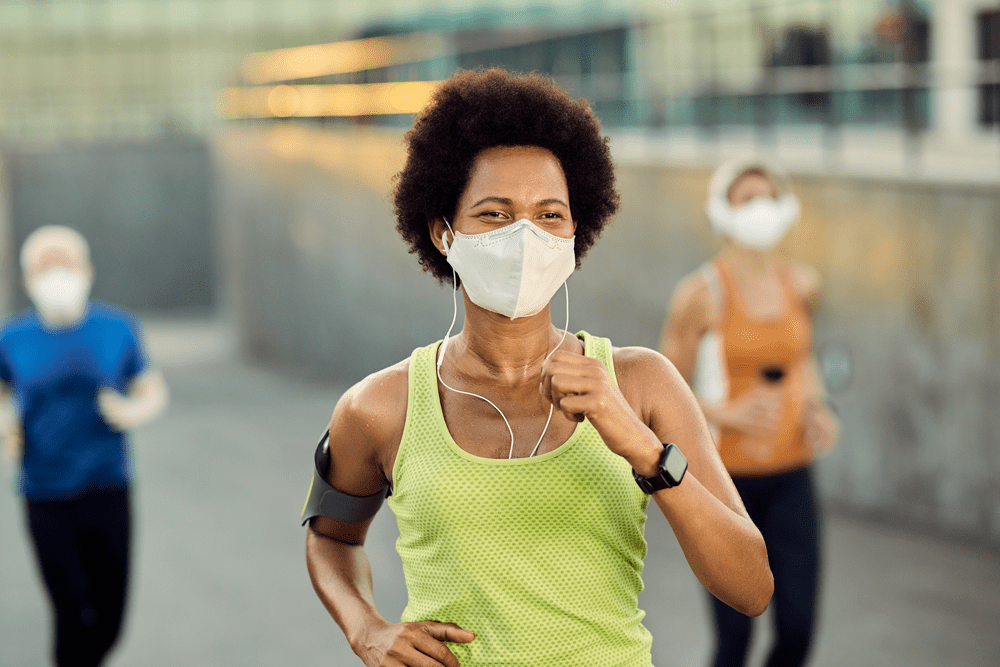It’s not a surprise that there are now COVID-19 variants. Viruses will mutate into new forms over the course of time. However, given the enormous impact COVID-19 has had on our lives, the emergence of variants around the world and now in the United States has many people concerned.
The most important things to know about these variants are:
1. Nothing discovered so far has fundamentally changed the recommended preventive approaches to COVID-19.
2. Many details are still being researched and learned every day.
While anxiety over COVID-19 variants—and all aspects of the pandemic—are understandable, their existence is not at this point a reason for panic.
What are virus variants?
Every time a virus replicates itself, there’s a possibility that it will not create a perfect copy of its genetic material. These coding mistakes—known in genetics as mutations—might provide the virus with an advantage, a disadvantage, or have no effect.
When a mutation is advantageous to the virus, it tends to persist. If researchers start to see differences in the virus’s genetic code or even its physical shape, they label it as a variant due to these subtle but important distinctions.
What do we know about the COVID-19 variants?
It’s important to note that there are multiple variants, that there will likely be many more, and that their specific characteristics can take a while to learn. That said, as of February 2021, there have been three main variants that were first reported overseas and have since surfaced in the U.S.
• B.1.1.7, discovered in the UK and currently reported in 34 U.S. states
• B.1.351, discovered in South Africa and currently reported in three U.S. states
• P.1, discovered in Brazil and currently reported in two U.S. states
As of now, they still represent a tiny fraction of total U.S. cases, but it’s expected their incidence will continue to rise. Researchers have also noted that the variants seem to be spread more easily than the original COVID-19 strain.
Are the COVID-19 variants dangerous?
All COVID-19 strains, including the original and the variants, should be treated seriously given that infection can potentially mean serious illness.
As of now, there is not conclusive evidence that the variants are more lethal or lead to more severe illness than the original strain. However, they do appear to be more transmissible. Because they’re more contagious, the variants could more speedily infect people, leading to more overall cases and a strain on the health care system.
The variants, therefore, are “dangerous” insofar as they present an added threat to public health in the absence of proper preventive measures. But on an individual level, it’s too early to say that there’s greater danger from one variant of COVID-19 to the next.
Why are the variants more contagious?
This is one of the things still being studied, but we do know that the variants have mutations on the “spike protein” the virus uses to bind to cells in the body. It’s believed the variants may more efficiently latch onto these cells, making respiratory infection easier.
What do we still need to learn about COVID-19 variants?
It’s still being determined whether, compared to the original COVID-19 strain, these variants:
Public health officials can only estimate the current spread of these variants due to the limitations of existing tests. However, it must be reiterated that there is no current evidence that the variants are significantly different in their impact on health.
Is it worth getting a vaccine if variants exist?
Absolutely, yes. Getting a vaccine against COVID-19 is still the single best protective measure you can take. Early results indicate that the existing vaccines are effective against the variants, despite some difference in efficacy compared to the original strain. The vaccines are especially potent in reducing the most serious cases.
Moreover, getting vaccinated, and therefore helping to stop the spread of COVID-19, means the virus will have less opportunity to linger and mutate and create new variants. Vaccination is crucial for both you and your community, in dealing with both original COVID-19 and its variants.
How COVID-19 variants may affect future vaccine efforts
Creating vaccines effective against COVID-19 variants is of considerable concern. Traditional vaccine trials take months to organize and implement, and in the meantime, new COVID-19 variants could emerge on the scene. To meet the urgent demand for vaccines against COVID-19 variants, the Federal Drug Administration plans to shrink the size of its clinical trials to hundreds of people rather than thousands.
Currently, current COVID-19 vaccines do work against each of the known variants, but additional research is needed to understand the relative strength of the vaccines in the face of each variant.
Vaccines still in development are undergoing the same level of scrutiny. For example, South Africa halted its planned distribution of the AstraZeneca vaccine because it was found to elicit an inadequate immune response against the B.1.351 variant, which currently dominates the country.
Continuing forward
The presence of COVID-19 variants makes it more important than ever to uphold basic preventive steps. Medical systems are still at risk of being overwhelmed with new cases of COVID-19 unless we all do our part to slow its spread. In the meantime:
• Continue to wear masks and wash them frequently.
• Consider Double Masking (layering two masks).
• Wash your hands with soap and water for at least 20 seconds throughout the day.
• Use hand sanitizer if soap and water are not available.
• Avoid touching your face.
• Reduce unnecessary in-person gatherings.

